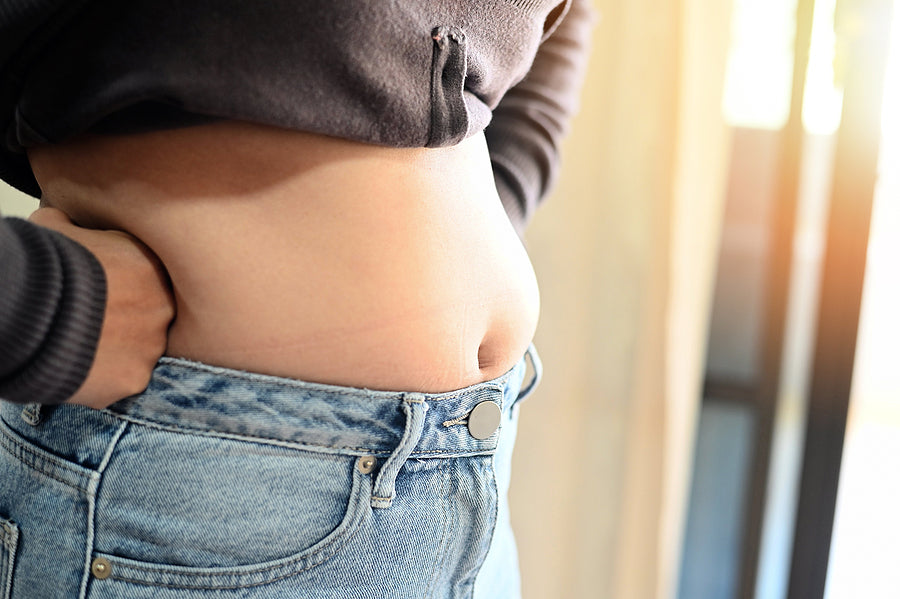
What They Don’t Tell You About Gallbladder Removal—And How to Thrive
Share
The long-term consequences of cholecystectomy (gallbladder removal) are often under-appreciated. While it is a common surgery and many people do well, research shows there are important metabolic, nutritional, gastrointestinal, and immune-related considerations. These considerations are why myself and others are so passionate about helping people to KEEP their gallbladders (and keep them healthy). It’s also important to know these considerations in case you do need to have (or already have) your gallbladder removed so that you know how to best support your body and your health sans gallbladder. Afterall, nothing is in the body for no good reason! So when we take something out, we need to add some extra care going forward.
Nutritional Deficiencies or Insufficiencies
Fat-soluble vitamins (A, D, E, K):
The gallbladder releases bile for fat digestion. Without it, bile trickles continuously (from the liver, where it is made) rather than being pulsed as needed. This can reduce absorption of fat-soluble vitamins over time, especially in those with already low bile production (e.g., hypothyroidism, liver dysfunction).
Essential fatty acids (omega-3, omega-6, DHA, EPA):
Malabsorption of essential fatty acids may lead to deficiencies affecting cognition, skin, vision, cardiovascular health, immune health and inflammation regulation.
Fat dependent Nutrients:
Bile helps absorb fat-dependent nutrients like carotenoids, CoQ10, and vitamin K2. Post-cholecystectomy, reduced absorption has been documented.
Gastrointestinal & Bowel Disease Risk
- Post-cholecystectomy syndrome (PCS): Up to 10–30% develop chronic bloating, diarrhoea, or abdominal pain due to continuous bile leakage into the intestine.
-
Chronic diarrhoea / bile acid malabsorption (BAM): Continuous bile flow can overwhelm ileal reabsorption → irritate the colon → chronic diarrhoea. Often under- or mis-diagnosed
-
Increased risk of colon cancer: Meta-analyses suggest a modestly increased risk, especially right-sided colon cancer, possibly due to continuous bile acid exposure and dysbiosis.
- Increased risk of NAFLD / metabolic syndrome (insulin resistance / diabetes): Loss of the gallbladder alters enterohepatic bile acid signalling (via FXR, TGR5 receptors), influencing lipid and glucose metabolism.
Autoimmune & Immune-Related Considerations
-
Altered microbiome: Bile acids are antimicrobial. Dysregulated bile flow post-surgery shifts gut microbiota. This alteration of the microbiome can set the stage for autoimmunity by increasing intestinal permeability and immune activation.
-
Chronic inflammation: Persistent bile acid irritation in the colon may contribute to low-grade inflammation, possibly linking to IBD-like symptoms in susceptible individuals.
- Autoimmune links: Evidence is emerging that altered bile acid signaling may affect T-cell balance and immune regulation. Some studies suggest higher risk of autoimmune thyroid disease, though this area is still being explored. There is an indirect risk here too, stemming from insufficient fat soluble vitamins, particularly vitamin D due to its role in immune regulation.
Metabolic & Systemic Implications
-
Dyslipidemia: Post-cholecystectomy patients may show higher triglycerides and altered cholesterol metabolism.
-
Insulin resistance / type 2 diabetes: Some large cohort studies find higher incidence, again via disruption of FXR/TGR5 bile acid signaling.
- Gut–brain axis effects: Malabsorption of fat-soluble vitamins and bile acid dysregulation may contribute to fatigue, mood disturbances, or even cognitive changes.
Risk Modifiers
-
Pre-existing gut dysbiosis or SIBO: Increases risk of post-surgery complications (and SIBO is a common side effect of blocked or insufficient bile flow)
-
Genetic variants in bile acid metabolism (e.g., CYP7A1, ABCB11): May increase vulnerability.
- Dietary factors: High refined carb/low fibre diets worsen post-cholecystectomy outcomes.
Support Strategies Post-Cholecystectomy
-
Digestive support: Bile acid supplements (e.g., ox bile), bitters, taurine, glycine to improve bile flow and conjugation.
-
Fat-soluble vitamin monitoring: Periodic serum levels (A, D, E, K) and supplementation if low. Prioritise sun exposure (without getting burnt) for vitamin D.
-
Microbiome support: Prebiotics, probiotics, resistant starches, polyphenol-rich foods.
-
Dietary strategies: Smaller, more frequent meals; moderate fat (not zero fat); soluble fibre to bind excess bile acids.
- Liver support: Milk thistle, dandelion root, phosphatidylcholine for bile quality, Liver Flush (usually referred to as The Gallbladder Flush) to support liver function, improve gut microbiome and thoroughly clear the bowels.
Cholecystectomy is not a benign surgery metabolically. Long-term, it may increase risk of fat-soluble nutrient deficiencies, bile acid diarrhea, inflammatory bowel issues, dysbiosis, metabolic disease, and possibly immune dysregulation. Supporting bile physiology, digestion, and the microbiome is key to reducing these risks.
For guided support to nourish your microbiome, support your liver and flush your liver and gallbladder (if you still have it, so you can keep it!), check out our online programs, 9V9 and The Gallbladder Flush.
The safety of laparoscopic cholecystectomy is not yet well documented. There are little or no published data available on complications, morbidity and long-term effects, but the potential for serious complications exists. There is an urgent need for studies to establish its success rate, complications, morbidity, mortality, long-term effects, and its cost-effectiveness, in comparison with those for open cholecystectomy and gallstone lithotripsy.
In 2021-2022 over 56,000 Austrlians had their gallbladders removed.
In Australia there’s a notable trend towards younger patients (aged 15-54) having their gallbladders removed, signalling a shift from used to be the demographic profile (once referred to as the 4 F’s – female, fair skin, forties and fat – as un-PC as that may now be).

